
The numbers that shaped debate at WEF 2024
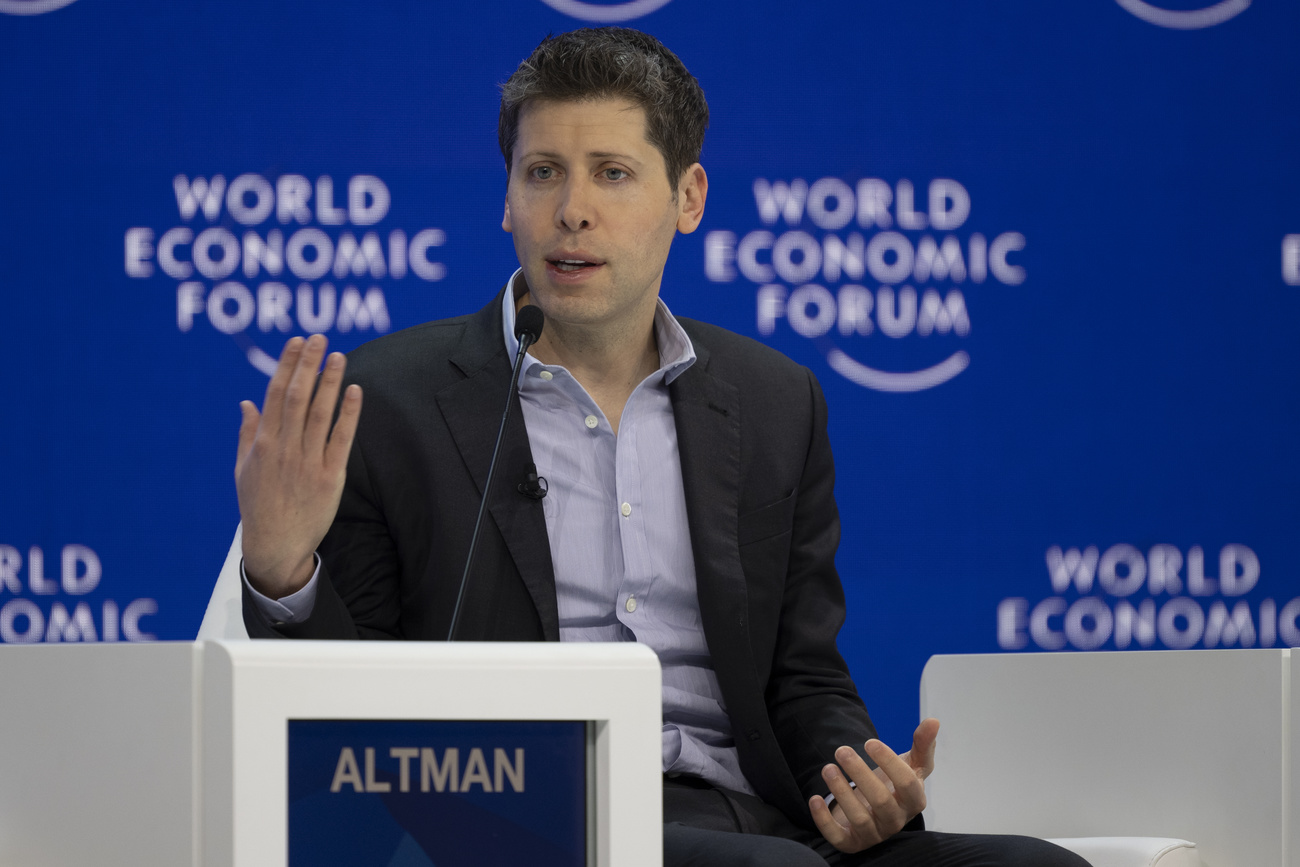
Artificial Intelligence was the talk of the town at the 2024 World Economic Forum, overshadowing wars in Gaza and Ukraine as well as climate change. Cameras were all pointed at Sam Altman, the CEO of OpenAI and creator of ChatGPT, who made more headlines than Middle East leaders. Trade and elections were also high on the forum’s agenda.
Participants at the 2024 edition of the WEF braved the elements in Davos with a mix of freezing temperatures, slippery roads and muddy boots throughout the week. But the climate (or rather, the climate crisis) wasn’t what everyone was talking about.
Here are the big numbers that shaped debate at the WEF’s 54th annual meeting in Davos.
83 countries
Some 83 countries and international organisations joined talks on peace in Ukraine before the official WEF meeting opened. The number of countries at the table is an achievement in itself, according to Swiss foreign minister Ignazio Cassis who co-chaired the meeting. But it doesn’t mean countries are close to an agreement on a detailed peace plan. A key player, China, wasn’t at the discussion table and according to reports, snubbed an invitation to meet Ukrainian President Volodymyr Zelensky in Davos.
For Switzerland, the meeting was a reputation boost. The National Security Advisors meeting and the first visit to the country by President Zelensky since the war started a little less than two years ago, marked a potentially more important role for Switzerland in future peace talks. For more details on the potential peace summit, read the story by my colleague Matt Allen.
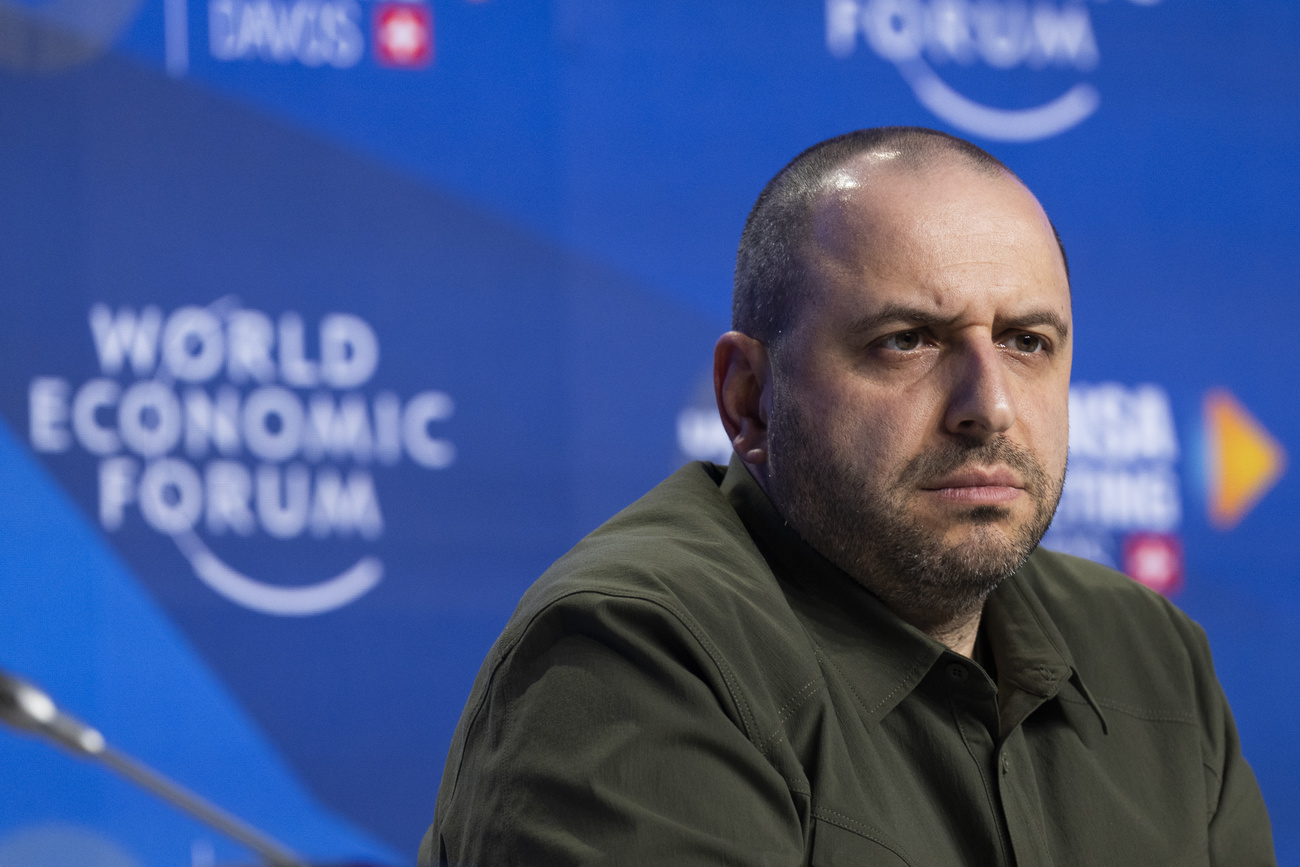
More
Ukraine and Switzerland urge countries to support peace plan in Davos
What participants (and taxi drivers) in Davos couldn’t stop talking about though was the traffic anywhere Zelenksy went. His celebrity status and large security entourage stopped traffic multiple times during his visit.
100+ sessions
There was much ado about Artificial Intelligence at this year’s WEF. There were at least 50 sessions on the official WEF programme that dealt with AI and around 70 that were hosted by the AI House, sponsored by the two Swiss federal technical institutes among others. That doesn’t even cover the sessions up and down the Davos Promenade.
A big part of the talk in Davos was on how to govern the technology and ensure it is transparent and inclusive. UN Secretary General António Guterres urged countries to take action soon to counter tech companies who are “pursuing profits with a clear disregard for human rights”.
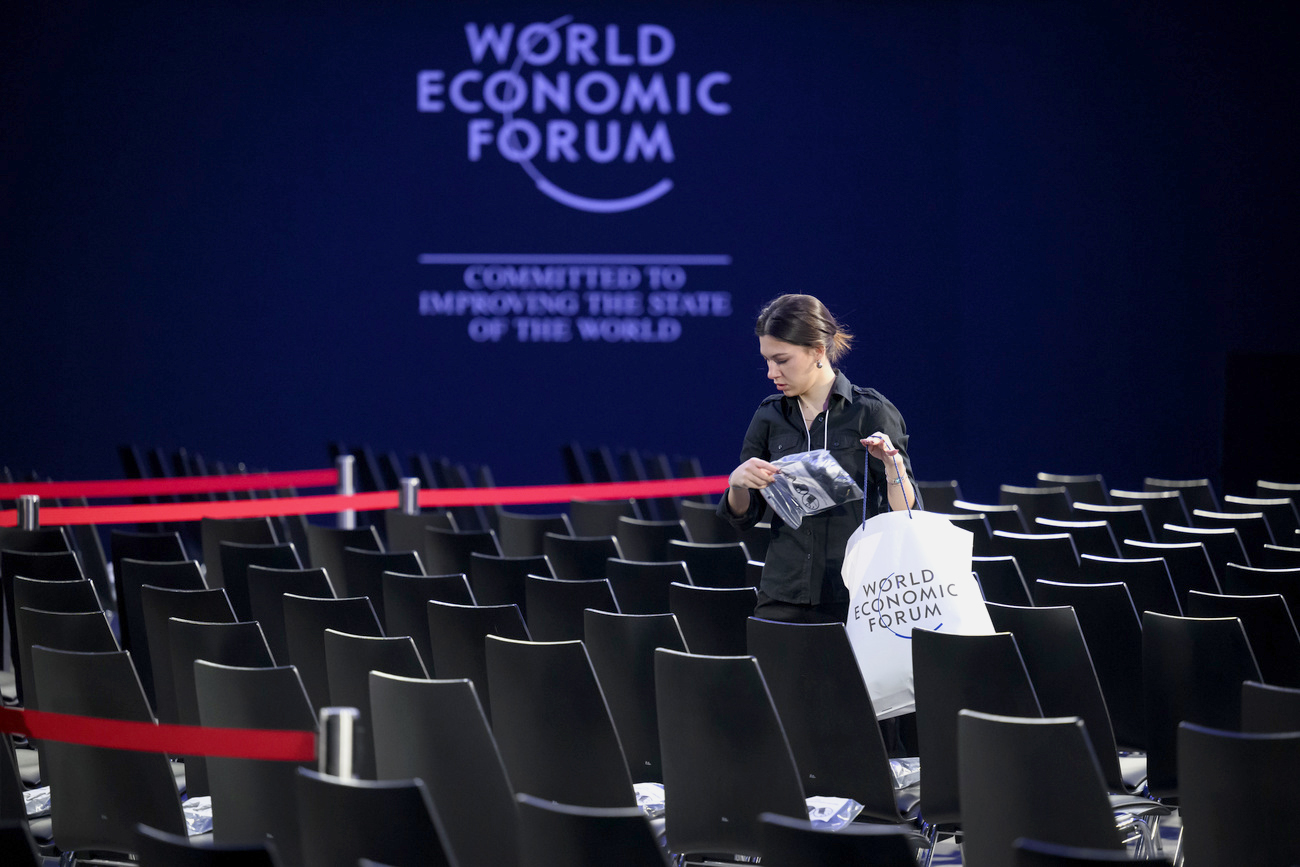
More
Can WEF break the impasse on global governance of AI?
But tech pioneers tried to give a reality check amid all the AI hype. Sam Altman, CEO of OpenAI, which developed ChatGPT, told the WEF audience that AI is “a system that is sometimes right, sometimes creative, often totally wrong”. Meta’s AI research director Yann LeCun also tried to moderate some of the hype around AI telling an audience at the AI House that “we are nowhere near human intelligence” and that he’ll be happy to see “something as intelligent as a cat” by the end of his career.
4 heads of state
Four heads of state from the Middle East including from Iraq, Jordan, Qatar and Israel were in Davos, putting the war in Gaza and the threat of a wider conflict in the region on the agenda. While there were many calls for a ceasefire, humanitarian aid and a two-state solution, the conflicts in the region were overshadowed by discussions on AI. If any diplomatic breakthroughs were achieved in Davos, it likely did so behind closed doors.
The president of Israel told an audience that he doesn’t “deny the human tragedy in Gaza” but that his country has “the right to defend itself” after the October 7 attacks. Iran’s foreign minister Hossein Amir-Abdollahian said that attacks on Israel will continue, unless the war in Gaza stops. “An end to the genocide in Gaza will lead to an end of military actions and crises in the region,” he declared.
Even in the context of AI, there was little talk about the use of drones or autonomous weapons and how this will change how wars are fought. One of the most terrifying warnings came from, Stuart Russell, an expert on autonomous weapon. He told an audience at the AI House, that with the help of AI a lethal weapon could be produced for under $20, “making it possible for anyone to have access to a weapon of mass destruction”.
3 degrees Celsius
The world is set to warm by nearly 3 degrees Celsius by 2100, wreaking havoc on our health, food supply, biodiversity and economies according to a UN reportExternal link released in November.
These worries didn’t spur the same lofty pledges to tackle climate change as they have at past WEF meetings though. Even US Climate Envoy John Kerry expressed his frustration in one of his many WEF sessions. “I’ve been trying to find a way every day to communicate to people what the urgency really is and why it is we need to take seriously what the scientists and mother nature are telling us.”
There were a host of sessions touching on the climate crisis, and a good deal of talk about the need to invest in the energy transition. But there was no one telling companies in Davos the “house is on fire”, like Swedish climate activist Greta Thunberg did in 2019. The fact that there were few young people on the streets and on the WEF stages may explain why climate didn’t get as much attention.
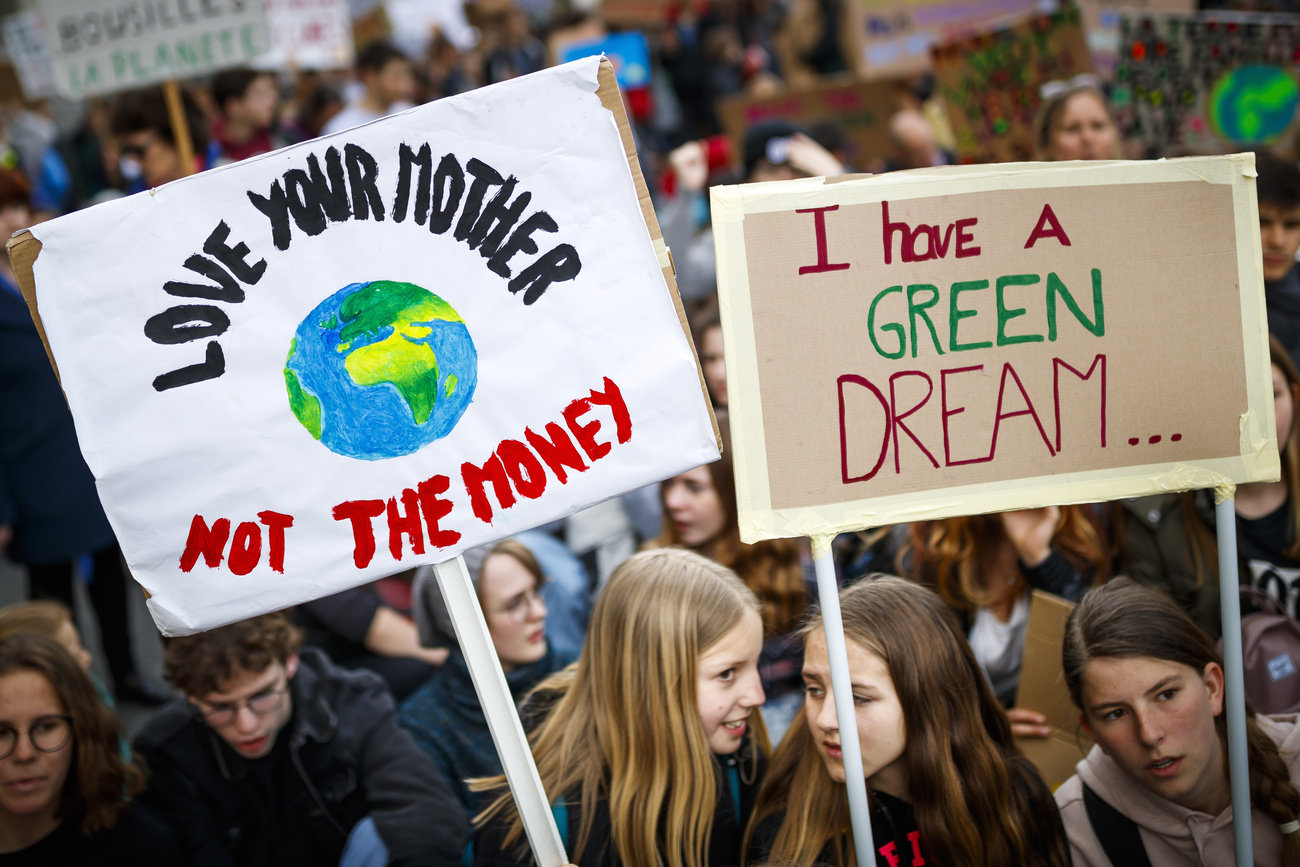
More
Swiss finance sector told to ‘green’ up its act
There’s another reason for the so-called “greenhushing” by companies. “Company leaders may hesitate to put themselves out there because the issue of sustainability has been so politicised,” Patrick Odier, former senior partner at Swiss private bank Lombard Odier and current Chairman of Building Bridges and Swiss Sustainable Finance told SWI on the sidelines of WEF.
2.9% growth
The WEF’s Chief Economist Outlook painted a gloomy picture for 2024. Economic growth last year was about 3% and is predicted to drop to 2.9% in 2024. Most concerning to many economists in Davos, is that trade, which has been a key engine of growth, has slowed. The pandemic and the war in Ukraine combined with shipping bottlenecks in the Red Sea and the Suez Canal are among the factors slowing trade.
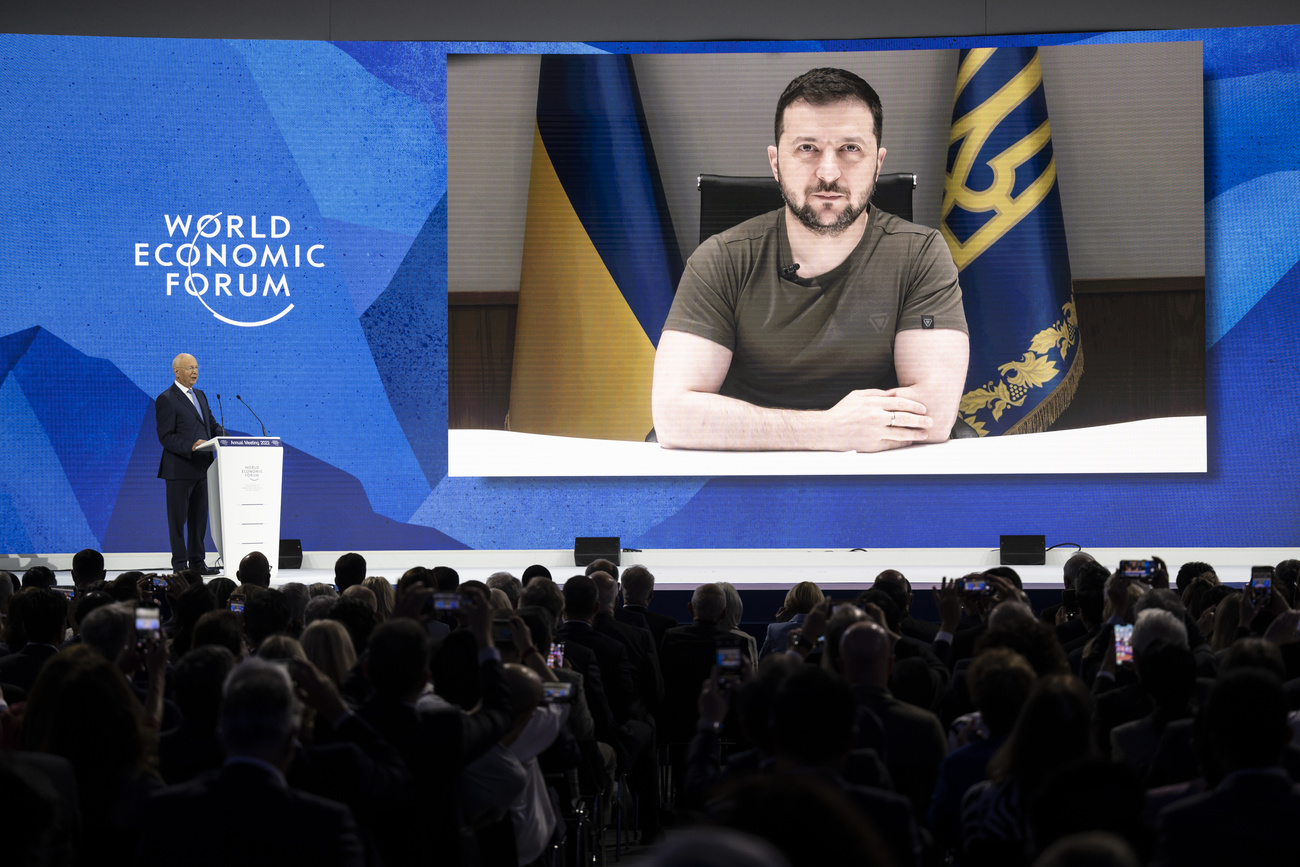
More
Who’s who at WEF and what it tells us about the world
Economists also pointed the finger at protectionist measures, which increased 38% in 2023. A key topic of discussion was moves by the US and Europe on semiconductors – the large majority of which are produced in Taiwan. US policymakers had no qualms about citing national security as a key reason to ban the export of chips to China.
Europeans also weren’t shy about the need to protect certain industries. “The Europe Chip Act is the first time we said that we need to have a supply chain that is so strategically important,” said Dutch economic minister Monique Adriaansens. “I think Europe should do that more of this when it comes to strategic goods.”
4 billion people
This is the number of people heading to the polls this year. More than in any other year in history. Five of the world’s six biggest democracies will hold elections: India, the US, Bangladesh, Pakistan, and Indonesia.
This makes 2024 a real test for AI. A key question discussed at WEF is how AI, chatbots, fake audio and videos could threaten democracy and propagate nationalism, mis- and disinformation. Experts at WEF warned there are growing risks that targeted or personalised messages are used to manipulate voter opinion, and that automated messages with incorrect information spread at a scale never seen before.
Cybersecurity and AI systems able to spot fake or manipulative messages spread on the internet will be therefore essential to protect democracies from the threats posed by AI. Investments must be made in day-to-day work to scale down these threats, said Alexandra Reeve Givens, CEO of the Center for Democracy and Technology.
0% export growth
China’s export growth was almost 0% last year, one of many signs its economy is undergoing a transformation. With real estate and manufacturing on the decline, China needs to find a new growth engine, said experts at WEFExternal link.
China’s number two, Li Qiang, was on a full charm offensive in Davos, telling a packed audience that “choosing investment in the Chinese market is not a risk, but an opportunity”. Attempting to dispel concerns about a slowing economy, he rattled off a series of good news soundbites such as 5.2% growth in 2023.
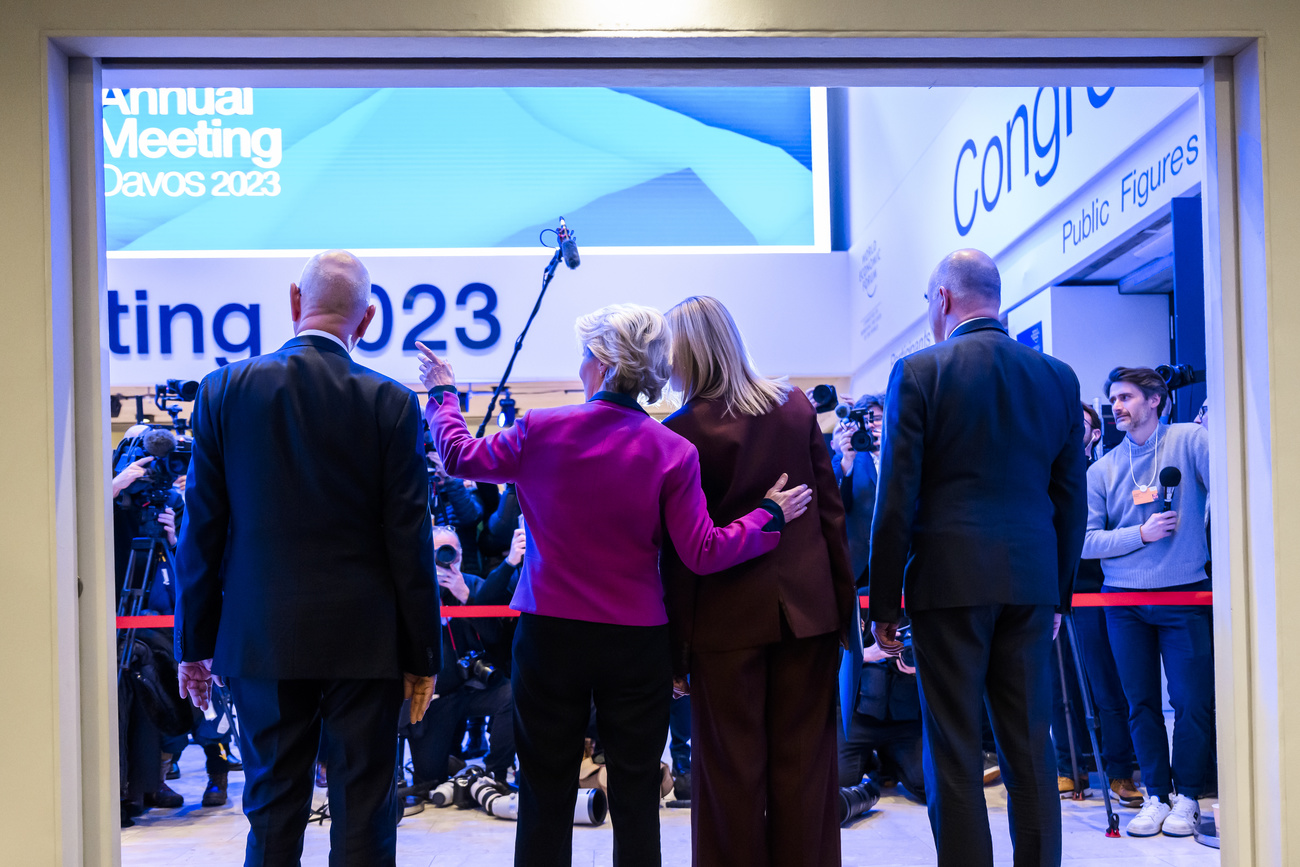
More
WEF by the numbers: highlights and horrors
The real challenge for businesses though said Belen Garijo, CEO of US-based Merck pharmaceuticals in a panel, is balancing national security, resilience and growth. China is a “very attractive business opportunity…but we need reliable rules, fair competition…and a level playing field for international businesses”.
800 women
That’s the number of women on the official WEF participants list. While a WEF spokesperson said that’s more than at any WEF annual meeting, it represents only 28% of the 2,800 participants. Their presence was especially lacking on the plenary stage. Swiss president Viola Amherd and European Commissioner Ursula von der Leyen were the only women who gave special addresses (out of 10) this year.
Despite this, gender equality still made its way into many discussions at WEF. One key reason is that people are starting to wake up to the fact that we need data that reflects the diversity of the world population if we are going to have any chance of removing bias and getting credible answers using AI.

More
Swiss ministers take stock after meetings at WEF
This is particularly striking in the health field which has a dearth of data on whether new drugs are safe and work for women in the same way they do for men, said Antonella Santuccione Chadha, who leads the Women’s Brain Project. Addressing the women’s health gap could boost the global economy by at least $1 trillion annually by 2040, according to a reportExternal link released at WEF.
10’000 GPUs
That’s the amount of graphics processing units (GPUs) of the supercomputer being built in Switzerland. This would make it the largest supercomputer in the world for powering AI models.
This gives Swiss scientists access to computing power that is normally in the hands of a few big tech companies, “who control them behind closed doors”, said Antoine Bosselut, head of the natural language processing lab at the Swiss Federal Institute of Technology in Lausanne (EPFL).
During WEF, Switzerland also launched an international computation and AI network that aims to make AI technologies accessible globally. “We need to put a system in place where countries who do not benefit from the capabilities and capacities to run AI projects can join those who can,” said Alexandre Fasel, State Secretary of the Swiss Federal Department of Foreign Affairs.
CHF113.60
That’s how much these trusty reporters paid for a taxi one evening to travel just 7 kilometres. This is three times the “regular” price. While time stuck in traffic can be blamed for some of this, it raises a question about how much price gouging is going on in Davos.
Davos-goers lamented the difficulty finding affordable lodging in town. Research by our colleagues at Swiss public radio SRF found apartments for CHF40,000 for 5 nights. Even Alois Zinggli, a managing director at WEF, told the Tages-Anzeiger that he’s seen unbelievable pricesExternal link.
Edited by Virginie Mangin/amva

In compliance with the JTI standards
More: SWI swissinfo.ch certified by the Journalism Trust Initiative

















![The four-metre-long painting "Sonntag der Bergbauern" [Sunday of the Mountain Farmers, 1923-24/26] had to be removed by a crane from the German Chancellery in Berlin for the exhibition in Bern.](https://www.swissinfo.ch/content/wp-content/uploads/sites/13/2025/12/01_Pressebild_KirchnerxKirchner.jpg?ver=8f77363a)













You can find an overview of ongoing debates with our journalists here . Please join us!
If you want to start a conversation about a topic raised in this article or want to report factual errors, email us at english@swissinfo.ch.